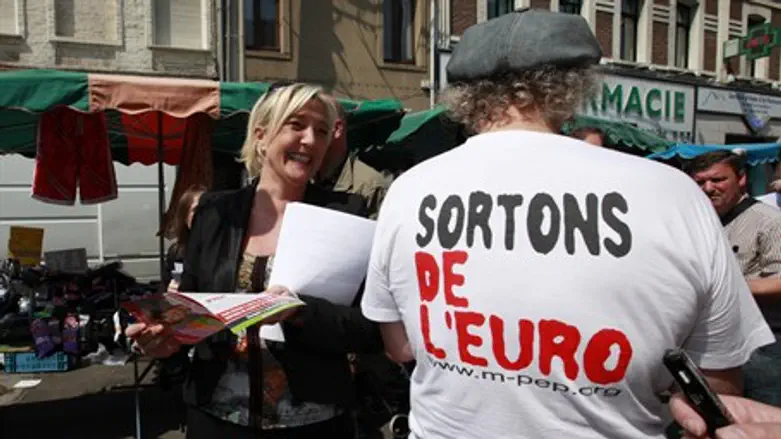
The polls on the legislative elections that came out last week in France have been validated by the actual results and contain good news and bad news for the Union for a Popular Movment (UMP) party that lost the presidential election last month.
The good news is that 2012 will not be a repeat of 1981. In 1981, the breakthrough victory of Francois Mitterrand was followed shortly afterwards by a French Socialist party landslide in the legislative elections, where the Socialist party got over 40% of the vote and built an absolute majority in the National Assembly.
According to the results, the Socialist party (PS) and the UMP both are running at about 35%. If one combines those voting for parties of the right and those voting for parties of the left, the right would have a slight majority at the polls. What some of the newspapers are doing is leaving out the National Front vote as if it were an UFO rather than part of the right.
So this is not a repetition of a left avalanche, and in particular, not a Socialist avalanche.
The bad news is that the UMP, the majority party in the outgoing assembly, will now be a party of opposition, because the logic that prevailed in the presidential election will repeat itself in the legislative vote.
The National Front of Marine Le Pen has gotten over 13% of the vote. In the last National Assembly elections in 2007, the National Front got half that total. This means that in the second round of legislative elections, the UMP candidate in many constitutencies will have to fight in a triangular contest, fending off both the candidates of a united left, while at the same time dueling with a National Front candidate to its right.
Even if the UMP has a clear shot, in a one-on-one competition in the second round against a candidate of the left, the candidate could be crippled by a simple refusal of National Front voters to cross over on the 2nd ballot - as occurred in the presidential elections.
This policy is being reciprocated by the UMP against the National Front. Marine Le Pen got 42% in the first round (you need 50% to win outright on the first round), but everybody else will be ganging up against her in the second round.
This means that National Front voters are showing no remorse for installing a Socialist president and hope to continue the strategy of cutting the UMP down to size in the hope of succeeding it as the major party of the French right. From the looks of last night, this has not happened - or at least is not going to happen right away.
Another take away is that, since the French Socialists are dependent first of all on the Ecology-Green movement with its 4 1/2% of the vote, that party can count on seats at the cabinet table, as could members of the far left should they choose, as in 1997, to enter a Socialist-led government. The French ecologists got over 5% and this strengthens their hand on the nuclear issue.
The Democratic Movement, that tried to build itself as a third force in the middle, is down to 3 1/2% and although its leader Francois Bayrou, who ran in the presidential election, endorsed Hollande on the 2nd ballot, he will be exceedingly lucky to hold on to his seat in the National Assembly.
The biggest surprise was the low voter turnout, with an abstention rate surpassing 40 percent. This strengthens the interpretation that followed the presidential elections - that even in defeat, the personality of former president Nicolas Sarkozy drove voter turnout. With Sarkozy out of the picture, greater apathy reigns.